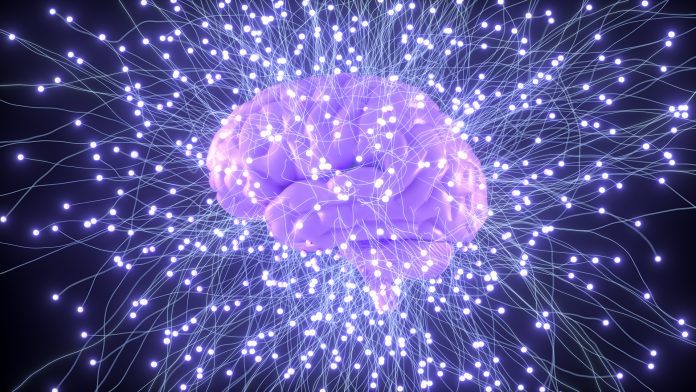
New research from King’s College London may have uncovered the reason why people experienced negative neurological symptoms after contracting COVID-19.
During a recent study, researchers from King’s College London found that when brain cells were directly exposed to blood from COVID-19 patients, there was an increase in cell death. Exposure to COVID-19 also led to a decrease in the generation of new cells. In some cases, this can lead to negative neurological symptoms such as delirium and confusion.
The in vitro study provided insight into the possible cellular and molecular mechanisms behind the development of neurological symptoms in COVID-19 patients. The findings have indicated that cytokines, an inflammatory protein produced in the immune system, can play a key role in informing potential treatments for neurological symptoms caused by COVID-19.
The findings have been published in the journal Molecular Psychiatry.
Covid-19 can have significant effects on the brain
“More and more, research is indicating that there is a neurological element to severe COVID-19 infection, but we have little understanding about what happens in the brain to produce these symptoms,” said Dr Alessandra Borsini, NIHR Maudsley BRC Senior Research Fellow, Institute of Psychiatry, Psychology & Neuroscience and first author of the study.
“Our research is the first to use blood samples from COVID-19 patients experiencing delirium to investigate how the infection impacts a process called ‘neurogenesis’, which is essential to maintain intact brain functions, including memory and thought processes.”
“We have found that there is a profound reduction in the generation of new brain cells and an increase in cell death, and these are likely mechanisms behind delirium, and possibly other neurological symptoms, in COVID-19 patients,” Borsini explained.
Neurological symptoms common in COVID-19 patients
Previous research has found that 20-30% of COVID-19 patients will develop neurological symptoms such as delirium. Delirium is the term given to a state of mental confusion that can develop when someone becomes medically unwell. Delirium can be associated with prolonged hospitalisation and death.
Prior to this study, little has been known about the cellular and molecular reasons behind delirium and other neurological symptoms in Covid-19, despite a good understanding of the respiratory symptoms. The King’s college study was the first to test the direct effect of blood taken from hospitalised COVID-19 patients with delirium.
The researchers have suggested that the development of neurological symptoms in COVID-19 patients is due to an overactive immune response. This response is known as a cytokine storm and occurs when an excessive amount of the inflammatory protein is produced by the body. These cytokines can move into the brain and disrupt a person’s neurological mechanisms. Currently, it is unknown which cytokines are relevant to neurological symptoms.
The researchers used a validated in vitro human cell model made from the cells of the hippocampus, the part of the brain associated with cognitive ability and memory. The researchers treated the cells from the hippocampus directly with the blood sampled before observing the impact on cell generation and death.
The results showed that the blood from the COVID-19 patients with delirium increased cell death and decreased the generation of new cells. Analysis of the blood found that patients with delirium had higher levels of cytokine IL6.
“The role of inflammation and our immune response in COVID-19 infection is well-known, but research like ours is now revealing how it affects our brain, our thinking and our mental health,” said Professor Carmine Pariante, Professor of Biological Psychiatry at the Institute of Psychiatry Psychology & Neuroscience and co-author of the study.
“Through a series of tests, we have shown that it is likely that the initial production of cytokine proteins as part of the inflammatory response in COVID-19 infection triggers a cascade of other cytokines which reduce generation of new brain cells and increase cell death, leading to brain symptoms such as delirium.”









